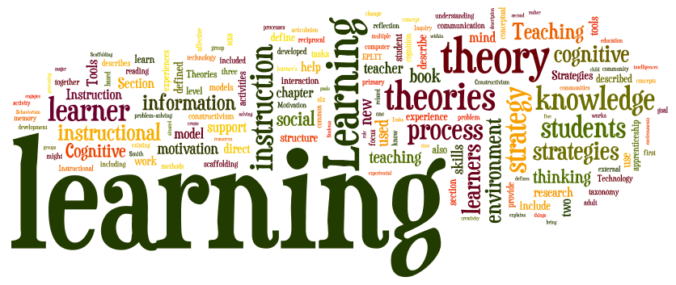Behaviorism, cognitivism, and constructivism
Behaviorism, cognitivism, and constructivism are parts of learning theories. Each level of learning varies among these theories.
Behaviorism is an approach to focus on scientific and objective methods of investigation. It emphasizes environmental factors, which helps individuals to learn. Learning is achieved during the specific environmental stimulus. Responses and stimuli work together to lead to new behavior or change in behavior. Last term, I took a biology course. The professor gave us opportunities to gain bonus marks, which was different from the other professors. We need to read extra-scientific articles and summarize them in a paragraph each week. This method increased our interest in learning biology and also increased our marks. Although it was difficult for us to summarize articles that were scientific and professional, this method was a good practice to advise students to learn positively.

Cognitivism, based on the mental process, needs learners to completely understand the information in their brain. Learning occurs in the mental structure and builds a schema. The known information will be organized and re-sharped to create a cognitive view. I prefer to draw tree diagrams during learning. It helps to create a clear structure of each chapter and the connections between each topic. I used this way to deepen the knowledge learned from the lecture. Each time I draw the diagram, I will re-construct my knowledge structure. It is a process to input, organize, store, and retrieve information. Yiwei also explained and gave examples of this theory.
Constructivism is a process that needs learners to express their own thoughts to others. These thoughts are based on their experience and knowledge. Learners are encouraged to communicate with others and re-form concepts and knowledge. Field trip study is a good example of constructivism. I took a geography field trip last year. My group went to Mount Tolmie to discover the track of ancient glaciers. It is a good chance for us to improve our geographic concepts. During the field trip, we communicated with each member and discuss the related topics. Therefore, constructivism is an approach to correct and enhance our knowledge.


Leave a Reply